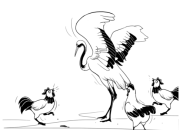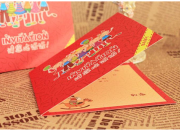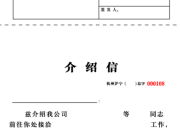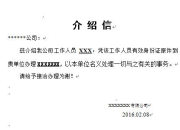如何写好高中英语作文
时间:2021-08-31预备知识(掌握词类、句子的成分以及句子的类型和种类等基本知识)

第一节 如何写好句子
句子是文章的基础,写好句子十分重要。
1.句子要正确。
误:Do you know where is the People’s Park?
正:Do you know where the People’s park is? (注:从句要用陈述语序,不能用疑问语序。)
2.句子要平行。
差:In my spare time I enjoy popular music and collecting stamps.
好:In my spare time I enjoy listening to popular music and collecting stamps.(注:enjoy 的两个并列的宾语都用动名词。)
3.句子要连贯。
差:Go into the park. Go forward. Cross the stream. Turn right.
好:After you enter the park by the main gate, walk straight on till you come to a stream. Cross the stream and turn right. (注:使用after, till, and 等过渡词,使句子连贯)
4.句子要有逻辑性。
误:I am very interested in computer and won first prize last year.
正:I was very interested in computer and won first prize last year. (注: 因为后半句的结果“去年获奖赢了”用过去时,所以前半句的原因“对电脑感兴趣 ”也必须用过去时,尽管至今仍非常感兴趣。“
5.句子要避免过多重复。
差:You will continue to walk. You will see a hill. You will go around the hill. You will arrive a lake.
好:After walking for a while you’ll come to a hill. Walk round to the other side of the hill. There you’ll see a lake. (注:通过主表交换的方法; 若真正主语为从句、不定式短语、动名词短语时,可用形式主语it.)
6. 句子要避免头重脚轻。
差: Chinese, maths, English, physics, chemistry and computer were the main subjects.
好: The main subjects were Chinese, maths, English, physics, chemistry and computer.
7. 句子要避免汉式英语。
误: My spare time lovers are swimming, skating, collecting stamps and listening to popular music.
正: In my spare time, I enjoy swimming…或 I’m fond of swimming…或 my favorites are swimming…或 my hobbies are swimming… (注:“业余爱好”不能写成“spare lover”,“lover”是“情人”的意思。)
第二节 如何写好段落
段落是有一组相关的、共同表达一个中心思想的若干句子组成。 段落本身具有完整性和连贯性。段落的长短要根据主题的简单或复杂而定。 高考的书面表达有时全文进用一个段落就可以表达全部内容。
段落本身又是一篇小短文,包括主题句、支持句和结尾句。 主题句是一个段落的中心或灵魂,代表着整个段落的主要思想,他往往放置于句子的首位。 支持句是用各种材料结实、说明、论证主题句的句子。 结尾句是有主题句和支持句发展而来的,他通常是一种肯定或否定的结论,是对全段一种浓缩式的说明。
段落的展开方式有多种:以实例展开, 以时间顺序展开, 以空间顺序展开,以过程展开,以细节展开等等。
段落的使用句式要错落有致,不要单调重复。例如,1995年高考很多考生书面表达中所需要的几乎都是将来时态,很多考生从头到尾用“you will ”,使文章单调乏味。 而有的考生则穿插使用祈使句和 I’m sure 等主观想象句,在辅以时间状语从句与非位于动词、长句或短句的交替使用,是文章更具可读性。
第三节 过渡词
为了是文章更加连贯、更具逻辑性,常常需要使用比较的过渡词。
1.表示增加的过渡词:also and and then too in addition furthermore moreover again on top of that another first second third等。
2.表示时间顺序的过渡词:now then before after afterwards earlier later immediately soon next in a few days gradually suddenly finaly等。
3.表示空间顺序的过渡词:near(to) far(from) in front of behind beside beyond above below to the right to the left around on one side outside等。
4.表示比较的过渡词: in the same way just like just as等。
5.表示对照的过渡词:but still yet however on the other hand on the contrary in spite of even though等等。
6.说明结果和原因的过渡词:because since so as a result therefore then thus otherwise等。
7.说明目的的过渡词:for this reason for this purpose so that等等。
8.说明强调的过渡词:in fact indeed surely necessarily certainly without any doubt truly to repeat above all most important等。
9.表示解释说明的过渡词:for example in fact in this case for actually等等。
10.表示总结的过渡词:finally at last in conclusion as I have shown in other words in brief as has been stated等等。
第四节 如何开头和结尾
“万事开头难”,“好的开头是成功(认识到)的一半”。 虽然开头有着各式各样的风格,不能千篇一律,要因不同文章的需要而各异,但又有其共同遵循原则:
1. 开头多是通篇文章内容的摘要;
2. 开头常能展示文章的主题;
3. 开头应能抓住读者的注意力,引导读者读下去。
开头的方法很多:开门见山,结实和描述主题,提供背景知识,小故事引路,提出问题,倒叙,悬念,名言,描写,等等。
结尾一般是文章的升华或对文章主题的归纳,也是写好文章的关键。好的结尾能唤起读者的共鸣,深化主题,给人回味,引人深思。
结尾的方法千变万化:总结主要观点,重复开头或题目,提出结论,提出问题,暗示答案,引言,故事,等等。
以[NMET1992年高考书面表达样题原文]为例,开头使用了“提供背景”的手法:“Betty set to work in the kitchen quickly. ”而结尾使用了“提出问题”的手法:“Oh, my goodness !The door’s locked and I don’t have a key. My dinner’s on the stove .What am I going to do ?”这个问题,让读者充分认识到她所处的窘境,把故事的情节推向高潮。











